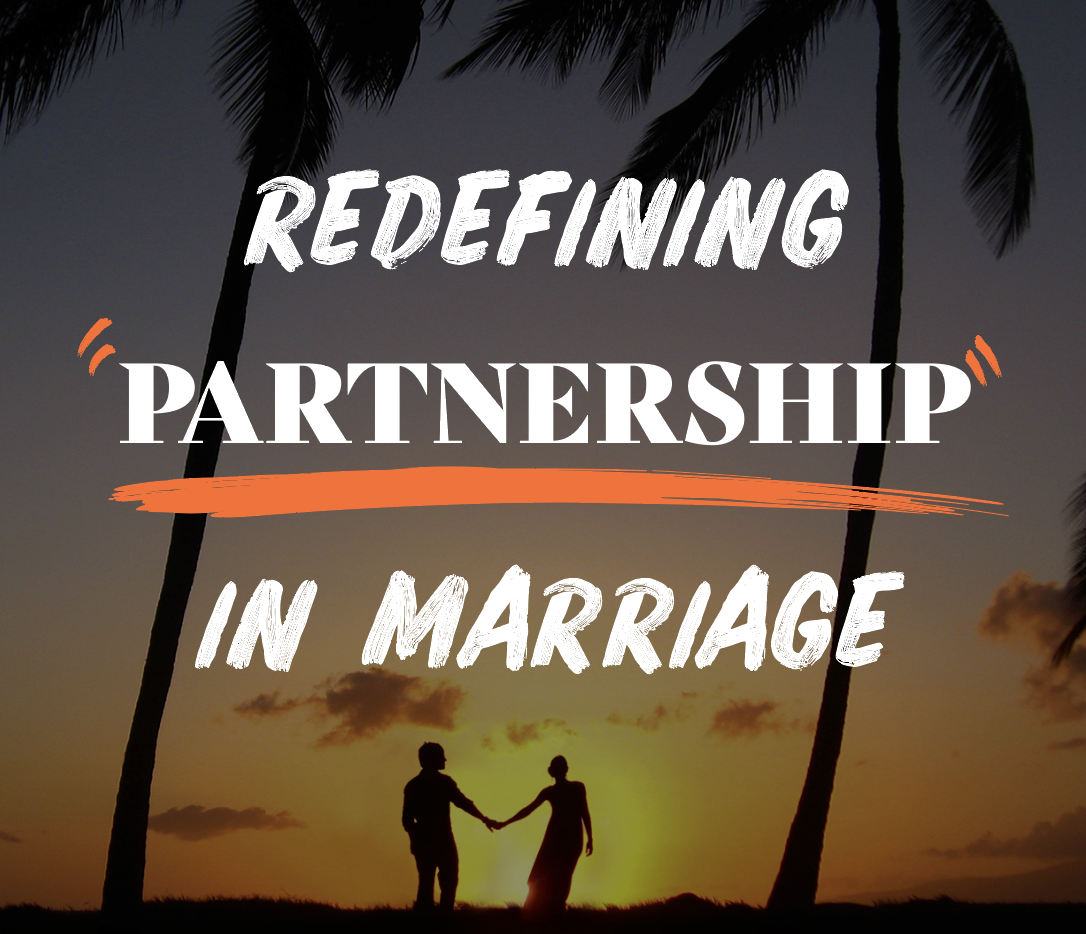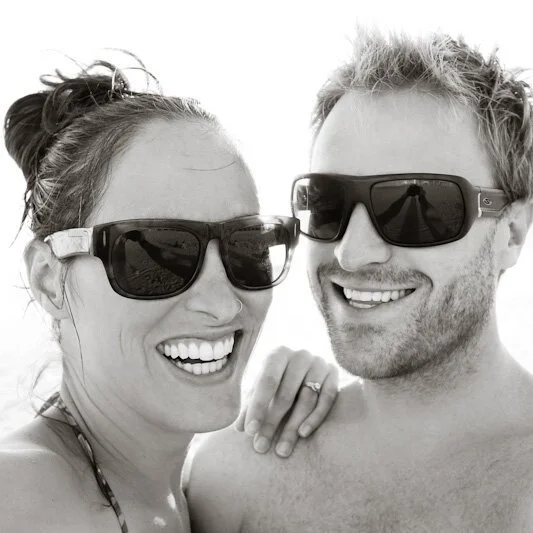Redefining "Partnership" in Marriage
Several years ago, my marriage underwent a fundamental shift—a total and complete overhaul of how we defined the word “partnership” in the context of our relationship. This shift made it possible for us to not just stay together, but for both of us to thrive as individuals and as a couple. Before this shift, I don’t think either of us really believed that was possible.
When we got married, having spent the entirety of our lives in conservative evangelical bubbles, we both understood partnership within marriage as an agreement to fulfill our separate roles (ie. “you do your duties, I’ll do mine”).
NOW… if you’d asked us at the time, we both would’ve claimed that we disregarded traditional gender roles and just divvied up the responsibilities according to what we were good at. And while some pieces of our marriage defied conventionality (ex. I bought most of our power tools and Gary picked out paint colors) the reality is that we took on the responsibilities and gender roles that we’d been trained to have by a lifetime in conservative churches and a patriarchal society.
Gary was told his primary role in our partnership was “provider” and “leader” so as long as he ticked off those boxes, he was fulfilling his end of the bargain—anything he did in addition to those two things was essentially extra credit. (Side note: This is why we sometimes hear men talk about “babysitting” their own children or doing the dishes “for” their wives.)
I, on the other hand, was told my primary role was managing the rest of our life while also supporting my husband in all of his endeavors. This included, but was not limited to, the majority of the household chores, the majority of the child-rearing, the grocery shopping, budgeting, meal preparation, healthcare, and health insurance, noticing when we were low on toilet paper, keeping track of the kids' activities, figuring out their schooling, working a part-time job, and doing it all while remembering that God was most pleased when I found meaning and joy in the mundane.
It was an extremely lopsided version of “partnership” that we sort of just fell into because it’s what we were conditioned to expect. And it worked for us… until it didn’t.
So, eight years ago, when I started talking about a version of partnership with a more fair and equal division of labor, there was a sense in both of us that I was failing as a partner. That good husbands who provided for their wives deserved to have good wives who held up their end of the bargain by doing everything else that needed to be done.
We had multiple friends transparently imply this very thing to our faces. A couple of Gary’s friends told him he was “letting me wear the pants” when we decided to move to Seattle for my graduate program.
But at a certain point, I just couldn’t do it. I didn’t want that sort of gender inequality for my daughters, I didn’t want it for myself, and… I didn’t want it for my husband.
Because this setup is bad for men, too.
Just like my value doesn’t lie in how many chores I do or how well I care for our home, his value doesn’t lie in going to work or bringing home the bacon. He is more than a paycheck just like I’m more than a helper.
We are both capable adults with interesting ideas, desires, hopes, goals, and a vision for our life beyond ticking the boxes of gender roles and divided duties.
In our marriage, the shift happened when we realized that true partnership meant a commitment to helping each other become the most vibrant, healthy versions of ourselves. To help each other, ourselves, our children, and our family live full and meaningful lives. Whatever that meant, whatever it looked like.
It was a massive shift that required tearing up the blueprint for marriage we’d been given and starting from scratch. And it didn’t come easy.
First, we had to figure out if we were even capable of partnering in that way. Could we even be the most vibrant, healthy version of ourselves if we were married to each other??
We each thought on it (for months) and decided ‘yes.’ We both make each other better people.
Then, we had to decide if our individual needs and desires to create a fulfilling life were compatible with each other. Did Gary need to live in a van in Alaska to be fulfilled? Did I need to run for office or live in a city? Were the things that would fulfill us as individuals mutually exclusive? Were they deal breakers?
After many more months, we each decided, ‘no’... we didn’t need these super different, super independent lives. We each had lovely alternate lives that we could have chosen. But ultimately, that’s not what either of us wanted.
Then, we had to figure out how to blend what he needed and wanted to be healthy with what I needed and wanted to be healthy (weighted evenly) and create a vision for our life as mutual partners.
We went on many walks and talked a lot about paths—which path he was on and which I was on. Which path we wanted to be on and if our paths were headed in the same direction or different directions. Could we merge our paths? Did we want to walk parallel paths? Chart a new path? Did we want to machete a new path through the jungle or find a paved road for a while? What was most ideal?
With the added complexity of two kids with individual needs of their own, it was a real conundrum.
It took us about three years to reach a good place and figure out what we each needed. We went to therapy together and separately (this is a topic for another post, but I think individual therapy was more helpful for us.)
Then, it took another 18 months beyond that to create any semblance of the path we dreamed up.
In the last eight years, we’ve tried and failed a lot of times to be good partners. We’re getting better and better at it, but we still fail sometimes because partnership is hard, everyone has baggage, old habits die hard, and we still live in a patriarchal society.
But right now, we’re in a beautiful season. I have the space and active support I need to go and be and explore who I am, who I want to become, and what I want to do. And so does he. And so do our kids.
No boxes to tick. Just humans to become and a life to live. Together.




